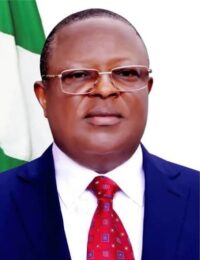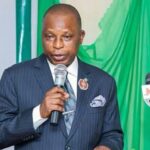The Federal Government, said is working hard to end frequent power grid collapses in Nigeria and achieving grid stability and reliability in the power sector
Nigeria has experienced frequent grid collapses caused by a combination of factors, including ageing and poorly managed infrastructure, lack of funding, and vandalism.
These factors have caused widespread blackouts that negatively impact the economy and daily life, forcing businesses and households to rely on expensive alternatives such as generators.
The Minister of Power, Adebayo Adelabu, made the vow in Uyo, Akwa Ibom State, on Friday while fielding questions from newsmen at the NISO Management maiden retreat 2025 with the theme “NISO on the Move.”
Adelabu, represented at the retreat by the Permanent Secretary in the Ministry, Alh. Muhammadu Mamman, said President Bola Tinubu’s administration, at inception, began doing things differently to ensure grid stability and reduce power outages in the country.
READ ALSO: FG Seals 30-year Hydropower Project Deal With Quaint Energy
He said the creation of NISO was an initiative of the Federal Government to ensure that things are done differently in the secto
However, Adelabu noted, “Since the commencement of this administration as everybody knows, things have been going on differently. The creation of the Nigerian Independent System Operator (NISO) itself is something that government is doing differently to ensure grid stabilization, reduction in power outages and ensure that every Nigerian has access to electricity.
“This maiden edition of NISO retreat is an avenue for them to dialogue and ensure that they are doing things differently, unlike the way it was being done before and that’s why we are here to support them to ensure that they succeed as an organization and make sure that the country gets adequate and stable power supply.”
Also speaking, The Managing Director of NISO, Abdul Mohammed, in his remarks explained that the organisation was created to complement government efforts by attracting private-sector investment and optimising existing investments in the power sector.
On why the huge investment in the power sector is not yielding positive returns in terms of steady power supply, the MD described the power business as capital-intensive, adding that investment in the sector has never been sufficient.
Also speaking, the Chairman, Board of Directors of NISO, Dr. Adesegun Akin-Olugbade, lauded the dedication of the staff of NISO, noting that such commitment led to the successful synchronisation of the Nigerian grid with the West African Power Pool (WAPP).
“From the very beginning, NISO has been about people: the men and women who keep the grid stable, who ensure the market runs fairly, and who represent Nigeria with excellence in regional and international cooperation.
“It is because of your dedication that NISO is earning its place as a strong, credible, and forward-looking institution in the Nigerian power sector.
“Your efforts achieved what many considered impossible the successful synchronisation of the Nigerian grid with the West African Power Pool (WAPP). Through strengthened coordination, transparent communication, and the professionalism of our system operators, Nigeria’s grid together with Niger and parts of Benin and Togo was synchronised with the rest of West Africa, from Nigeria to Mauritania, operating seamlessly at a single frequency for four uninterrupted hours,” Akin –Olugbade said.











